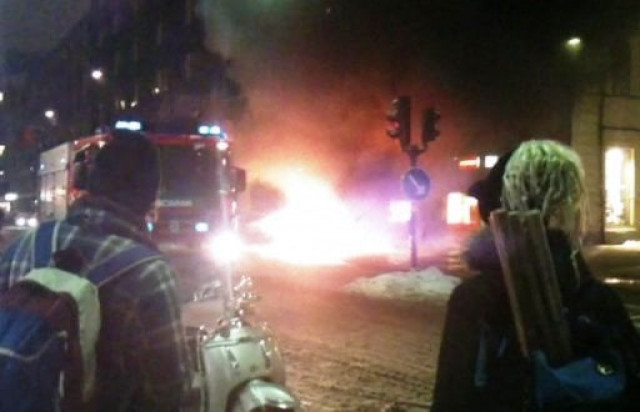About 200 extremists in Sweden: Intel
Swedish intelligence agency Saepo publishes report on extremist activities in Sweden.

Some "80 percent of the 200 can be linked to each other," Malena Rembe, the chief analyst at Saepo's Counter-Terrorism Unit told reporters, adding they were not part of one big network.
"The radicalisation happens in Sweden," but "the concrete threat is mainly directed at people in other countries," Rembe said, explaining that most of the violence-promoting extremists were Muslim men between the ages of 15 and 30.
The man suspected to have carried out this weekend's bombing was not among the 200 extremists the agency knows about, she said.
"Most of these networks focus on action and propaganda against foreign troops in Muslim countries and against governments they see as corrupt and not representing what networks consider to be the only true interpretation of Islam," Saepo said.
It explained in its 126-page report, which was commissioned by the government before the weekend's suicide attack, that extremists focus on areas such as Somalia, Iraq, Afghanistan and Pakistan.
The agency stressed the 200 or so extremists were "not a threat to the fundamental structures of society, Sweden's democratic system or central government."
The report comes days after Sweden's first-ever suicide bombing on Saturday, carried out by a man strongly believed to have been Taimour Abdulwahab, who until recently had been living in Britain.
He killed himself before he could carry out what, according to the lead prosecutor on the case, appears to have been a mission to murder "as many people as possible."
Abdulwahab, who was known for his outspoken views in favour of violent jihad, was the only person killed when some of the explosives he was carrying detonated, but two others were injured when his car exploded nearby minutes earlier.



















COMMENTS
Comments are moderated and generally will be posted if they are on-topic and not abusive.
For more information, please see our Comments FAQ